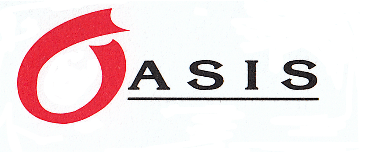Our history
From the original Centre at 278 Friel Street in 1975 with only two physicians, a nurse, and a secretary-receptionist, read about our journey to become a thriving Community Health Centre that attracts clients from all walks of life.
1973
- SHCHC's forerunner, the Sandy Hill Community Development Corporation, was incorporated. Its board of directors – largely composed of civic-minded Sandy Hill residents – met to discuss the need for additional health care facilities, low-income housing, a dental clinic, and day care services in the Sandy Hill area. An assessment conducted by the Corporation confirmed that health services were badly needed in the area, and within the next two years the board convinced the Ministry of Health that the community was ready to sponsor a health centre.
1975
- The Centre opened its doors at
278 Friel Street on December 1. The original staff consisted of two physicians, a nurse, and a secretary-receptionist. During its first four years, the Centre operated in a fairly traditional manner, much like a family physician's office.
1980
- Increased client demand and a desire to expand programming resulted in the relocation of the Centre to a larger and far more visible location: Sandy Hill's recreation building at
250 Somerset Street East. The relocation and major staff changes in '80 and '81 paved the way for a new, multi-service vision of the Centre.
1982 - 1984
- SHCHC marked its tenth anniversary year by publicly committing itself to providing primary health care with an emphasis on holistic, preventive services. The unique integration of medical, social, and health promotion services and the innovative forms of service delivery that now characterize the Centre developed considerably over this period.
1985
- The Centre's patient roster reached 5,600, with increases of 6-10% per year.
1987 - 1988
- The Centre's name was officially changed from Sandy Hill Community Development Corporation to Sandy Hill Community Health Centre, Inc. Health Minister Larry Grossman announced major financial support for Ontario health centres; this new funding enabled SHCHC to buy much-needed computers and to develop new health promotion programs. SHCHC's Health Services program began serving the homeless population.
1989 - 1990
- SHCHC was forced to move from its Somerset location. While searching for a permanent home, the Centre moved to temporary quarters at
24 Selkirk Street in Vanier. SHCHC adopted an Official Languages policy, formalizing its commitment to providing services in French. Also during this period, three new major programs were established: Seniors' Health, Community Outreach, and Addiction Assessment and Referral.
1991
- SHCHC located, purchased, and began renovating the building in which it is currently located.
1994
- SHCHC moved into its present site at the corner of
Nelson Street and Rideau Street.
1998
- The Centre received funding for its new Homeless Initiative, enabling it to expand its outreach and health services for Ottawa's homeless population.
2000
- A staff of 75 – including a wide variety of health care providers and administrative staff – and a pool of over 100 volunteers provide an impressive variety of programs that serve specific client populations and the community at large.
2001
- Hired new Executive Director, Karen Patzer. SHCHC is the largest CHC in Ontario.
2002
- SHCHC has over 150 staff, 100 volunteers, and more than 70 community partners managing and delivering programs and services in primary care, social services, addictions services, health promotion and education, community development, mental health crisis and advocacy.
2003
- The Ottawa Hospital makes decision to take back the $2.5 million MHCS Program. First salary increase approved by the MOHLTC since 1992.
2004
- Hired new Executive Director, David Gibson. SHCHC initiates a 2-year organizational renewal plan.
2005
- Champlain Local Health Integration Network begins new regional health planning and funding role.
2006
- SHCHC receives French Language Health Services Designation from the Ministry of Health and Long-Term Care.
2007
- New Strategic Plan Approved.
2008
- Oasis Program re-locates to 221 Nelson Street.
2009
- SHCHC receives funding to renovate 221 Nelson Street building.
2010
- SHCHC receives a provincial Health Equity Award for new health clinic for street-involved youth.
2011
- SHCHC receives funding from the Champlain LHIN for Methadone Maintenance Treatment and primary care services for people who have problematic substance use.
2012
- SHCHC receives funding from the Canadian Mental Health Association of Ottawa for Intensive Case Management of people who have substance use disorders and are unstably housed or live in shelters. The program operates with a “Housing First” philosophy that emphasizes that housing is a human right and fundamental to health and recovery. This is one of Ontario’s largest ICM programs (120 clients) and the first mandated to serve people who use drugs.
2013
- Primary Care Outreach Seniors Program is launched in collaboration with health professionals and other agencies to reduce isolation and support to high risk seniors living at home.
2014
- Beginning of partnerships with United Way for Strathcona Heights and the Homework Club at the Viscount Alexander Public School.
2015
- SHCHC celebrates the 40th anniversary!
2016
- In November 2016, SHCHC launches its first social entrepreneurship endeavor, the Urban Beat Coffee & Tea House, in partnership with the Champlain LHIN, City of Ottawa, Community Foundation of Ottawa, St. Joe’s Supper Table, United Way Ottawa, as well as the Community Fund for Canada’s 150th (a collaboration between community foundations, the Government of Canada and extraordinary leaders from coast to coast to coast).
2017
- In the fall of 2017, SHCHC launches the Vanier Social Pediatric Hub, a collaboration between Vanier Community Service Centre (CSC), Hôpital Montfort and CHEO. The Hub is the first of its kind in Ontario to deliver comprehensive health and social care in underserved and high-needs neighbourhoods. Its core team includes a nurse practitioner, social worker, pediatricians and a receptionist who work closely with existing Vanier CSC social services including legal, immigration, employment and food bank services, wellness programs and other supports. The goal of social pediatrics is that children and youth reach their full potential by addressing the needs and human rights of the whole child within their family and community – with children, youth and their families as active participants.
- Sandy Hill CHC receives provincial Transformative Change Award for our advocacy efforts to implement supervised injection services.
2018
- In April 2018, construction is finished with approval by Health Canada to proceed with the start-up of Supervised Injection Services (SIS). On April 16, 2018, the program opened on a limited schedule, from 9 AM to 3 PM. In December 2018, under the new Provincial Progressive Conservative Government requirements, SHCHC submits the application and revised budget to operate a Consumption and Treatment Services (CTS) program. The already existing SIS program is operating now Monday to Friday, 8 AM to 8 PM.
2019
- On March 29, 2019, SHCHC is one of the three CTS sites in Ottawa approved by the MOHLTC to operate. Services are now available 7 days a week, 8 AM to 8 PM.
- In the spring of 2019, the MOHLTC reveals the criteria and process for engagement as the work advances to establish Ontario Health Teams (OHT) as the new model of integrated care to improve the client experience and client outcomes while ensuring maximum value of resources. The intent is to bring together all sectors within the health system with an initial focus on primary care, hospitals and home care. These teams will ultimately be responsible for delivering more integrated care for clients, understanding their health care history, directly connecting them to the different types of care they need, and helping 24/7 in navigating the health care system. Champlain CHCs have been invited to participate in the development of a regional OHT for children and youth with CHEO and several other partners as the initiating organizations.
- On July 18, 2019, the MOHLTC notified the Ottawa OHT conveners that we have been approved to move forward with a full application by October 9, 2019. There were three Champlain LHIN OHT readiness assessments accepted by the MOHLTC to move forward with a full application.
- On December 6, 2019, the Ministry of Health announces the Ottawa Ontario Health Team as one of the first 24 teams in the province to implement a new model of organizing and delivering health care that better connects patients and providers in their communities to improve patient outcomes. The Ottawa Health Team – Équipe Santé Ottawa (OHT-ESO) is facilitated by 11 convening partners, including The Ottawa Hospital, the six Ottawa CHCs, Ottawa Public Health, Inner City Health, Bruyère and others. OHT-ESO also includes client and family partners and more than 60 organizational partners.
2020
- On March 12, 2020, the Centre activates the Ottawa CHCs 2019-2020 Pandemic Plan to support the emergency response to the evolving COVID-19 pandemic. The Centre starts operating in ‘essential services’ model and staff is re-deployed where more resources are needed. The six Ottawa CHCs take a lead role in addressing the huge impact of the pandemic on the community and mostly on the most vulnerable and racialized groups.
- September 2020: Sandy Hill CHC opens a COVID testing site for community members who experience barriers accessing other testing sites. The service would develop to demonstrate a higher positive test result percentage than other testing sites.
2021
- February 2021: CHCs employees identified as high priority for COVID vaccinations due to essential work with vulnerable populations.
- April 2021: CHC employees participate in vaccination outreach to isolated individuals and Ottawa Carleton Housing tenants.
- May 2021: Sandy Hill CHC provides COVID vaccines for Sandy Hill CHC clients.
2022
- Sandy Hill CHC launches new website and visual identity.









